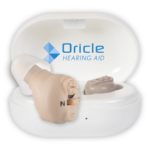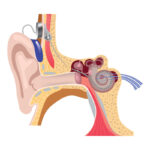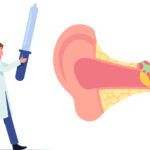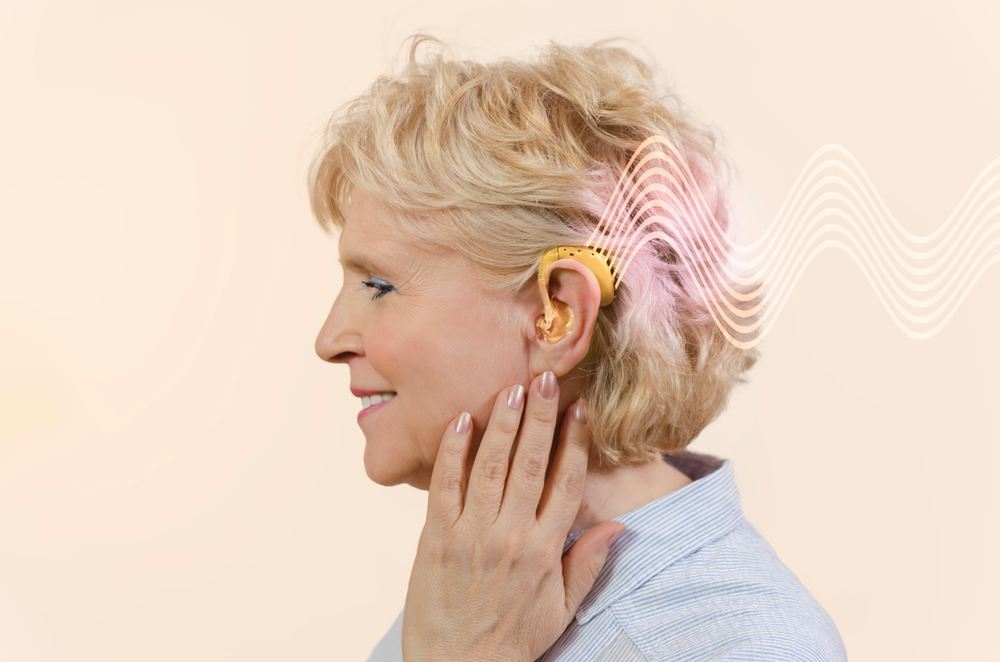Ears Wide Open: Discovering the Signs of Potential Hearing Loss
In this article, you will learn more about temporary hearing loss, sudden deafness, and ototoxic drugs. These conditions can occur due to several factors, including age, genetics, or other underlying condition. If you are suffering from hearing loss, you may want to seek medical treatment if it seems unprovable. In addition, you'll learn about the many treatments available, including cochlear implants and hearing aids.
Temporary hearing loss
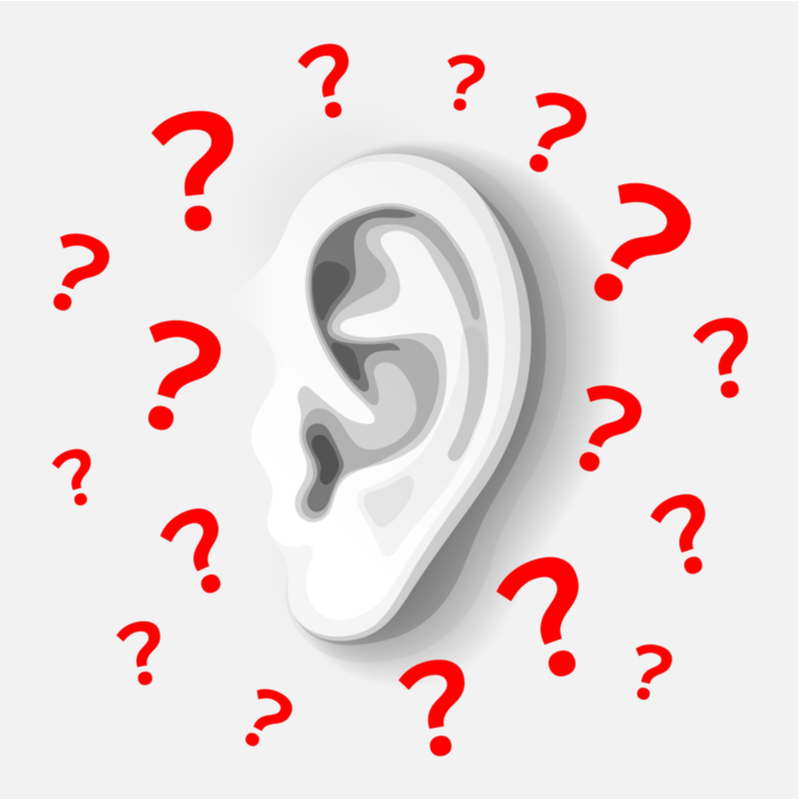
Sudden sensorineural hearing loss occurs in approximately 66,000 people in the U.S. every year. This condition is devastating and may not be as rare as many people think. However, it should be taken seriously, as it may signal an underlying medical problem. In this article, we'll take a look at the causes of temporary hearing loss and how you can prevent it. Also, we'll discuss the symptoms of sudden hearing loss.
People who are suffering from sudden sensorineural hearing loss (SSHL) will experience a ringing or muted sound in one or both ears, and they usually discover it upon awakening in the morning. In some cases, they might even notice a loud noise before the hearing goes away. It's important to seek immediate medical treatment for sudden hearing loss, as you're much more likely to recover from it if treated quickly.
A doctor may order a series of tests to determine the cause of the temporary hearing loss. These tests can determine whether damage to the eardrum or middle ear is to blame. Sometimes, abnormalities in the brain are to blame, so doctors may switch medications or prescribe surgery. While there's no cure for temporary hearing loss, you can improve your quality of life by wearing hearing aids. But a permanent solution remains elusive.
Sudden deafness
Sudden deafness is a condition that results in loss of hearing in one or both ears. There are a variety of causes of sudden deafness. Infection or an autoimmune disease can cause the body to attack the inner ear, leading to sudden deafness. If you suspect this condition, your doctor will likely prescribe drugs to suppress your immune system. In addition to treatment for sudden deafness, hearing aids may also be recommended.
Regardless of the cause of sudden deafness, it is vital to see a doctor as soon as possible. Early diagnosis and treatment of sudden deafness can significantly improve your chances of full recovery. During your visit, your doctor will perform a physical exam and may refer you to an ENT specialist who specializes in the ears, nose, or throat. Be sure to tell your doctor of any medications you are taking, and any previous medical conditions you may have.
If you suspect that you are experiencing sudden deafness, see your doctor. Sudden deafness, also known as sudden sensorineural hearing loss, occurs suddenly, sometimes in one or both ears. Fortunately, many cases are temporary and treatable. Sudden deafness affects about one person in every 5,000 people, but the actual number may be higher. Because many people recover quickly, there's a good chance that your hearing will return soon after the sudden deafness has ended.
Temporary threshold shift
There are several factors that affect people's susceptibility to TTS. These include age, duration of work, smoking, long-term use of medication, and using headphones. The study also found that no participant had an overly large change in hearing threshold following exposure to loud sounds. It is not known how long TTS symptoms can last, however. People who experience a temporary threshold shift should seek medical advice.
The more injurious noise exposure may result in both a temporary and permanent threshold shift. Although threshold shifts up to 50 dB may recover completely, more severe immediate hearing losses are likely to be permanent. Over time, repeated exposure to loud noises may lead to a permanent threshold shift. Occupational noise exposure, for example, can cause the shift. While there is no definitive cure for this condition, there are some treatments available.
A temporary threshold shift is another common cause of hearing loss. When exposed to loud noise, the human auditory nerves are overworked and lose the ability to detect subtle sounds. This condition results in tinnitus, ear ringing, and a temporary loss of hearing. This temporary loss can last for up to 10 hours and can be caused by exposure to loud noises for long periods of time.
Ototoxic medications

Ototoxic medications are a class of medicines that cause ringing in the ears. If taken for an extended period, these drugs can lead to permanent hearing loss and balance disorders. There are over 200 different ototoxic medicines available on the market today. These include medicines for serious infections, heart conditions, and cancer. When considering the use of any medication, health care professionals should take into account the effect on your hearing and overall quality of life.
When taking ototoxic medications, it's important to follow instructions closely. Dosages should be monitored closely and patients should avoid loud noises for as long as possible. There are other alternative treatments available that are equally effective and safe. Always remember to follow your physician's prescription and consult a pharmacist or doctor before taking any new medication. Ototoxic medications are not necessarily the cause of tinnitus, but their use can lead to the development of this condition.
It is important to monitor for signs of ototoxicity as early detection is vital to prevent permanent damage. Although many studies have found a link between ototoxic drugs and permanent hearing loss, a standardized classification is not available. Because patients often do not notice the initial effects of ototoxicity, it's important to educate them about the signs and symptoms of the disease. Ototoxic medications should not be given to elderly patients, those with pre-existing hearing loss, or those with additional risk factors.
Signs that you're going deaf
If you've been hearing quiet voices and you can't understand people around you, it could be a sign that you're going deaf. It's common for people to adjust the television volume to get the best sound quality, but if you find that your voice is very quiet, you may be hard of hearing. If you've noticed that you can't hear what other people say, you should seek medical attention.
One of the first signs that you're going deaf is increased difficulty following conversations in groups. You might find yourself turning up the volume on the TV or radio. You may be asking people around you to turn the volume down, and you're having a difficult time identifying who's speaking. Your cell phone ringtone may also be rising. A decrease in hearing could lead to other symptoms, so it's important to monitor this condition.
If you've noticed any of these symptoms, it's time to seek medical attention. Your hearing can diminish due to aging, injury, and exposure to loud noises. But it usually occurs over time, so you can notice early signs of hearing loss before they get worse. For instance, if you notice that you're asking people to repeat themselves more often, you could be deaf!
Treatment options
Depending on the severity of the condition, some people may not be able to hear at all. Mild deafness may require a hearing aid, while severe deafness may require lip-reading or signing. In the latter case, the individual may be able to hear sounds above 90dB but will have to rely on other methods of communication. A significant percentage of the population over the age of 18 is affected by some degree of hearing loss.
For those who are profoundly deaf and cannot hear speech, cochlear implants may help restore hearing. The devices consist of thin wires implanted in the inner ear. These implanted devices convert sound waves into electrical impulses that stimulate the auditory nerve, which sends signals to the brain. A modern multi-channel cochlear implant may even allow a deaf person to understand speech without lip-reading. In severe cases, telephone communication devices and light alerting systems may be used.
A doctor may recommend a variety of treatments. For the most part, a doctor may prescribe assistive listening devices, which can help a person hear better and reduce background noise. Such devices may include television listening systems, phone amplifying devices, and smartphone apps. In some cases, a patient may even benefit from a closed-circuit system in a public place. If a hearing aid isn't the right choice for a person with a hearing impairment, it is best to visit a specialist for a diagnosis and treatment options.
Sources
- American Speech-Language-Hearing Association. (n.d.). Hearing Loss and Treatment. https://www.asha.org/public/hearing/ Hearing Loss and Treatment
- Centers for Disease Control and Prevention. (2021, February 22). Hearing Loss. https://www.cdc.gov/ncbddd/hearingloss/index.html


